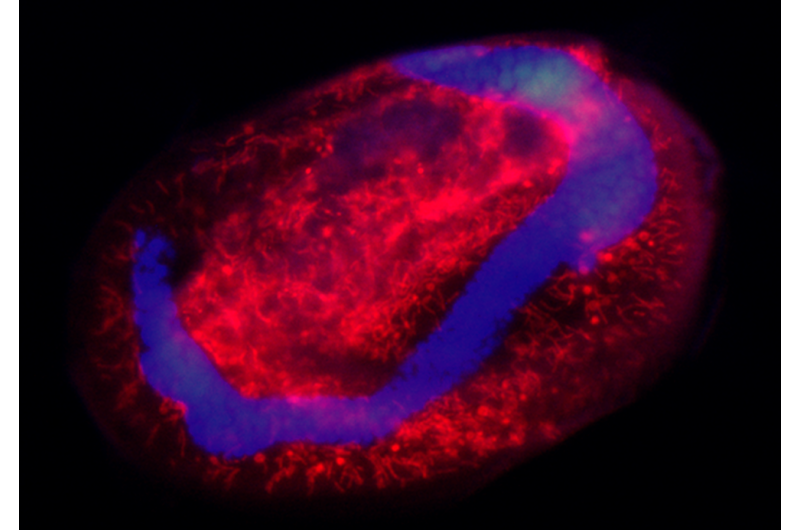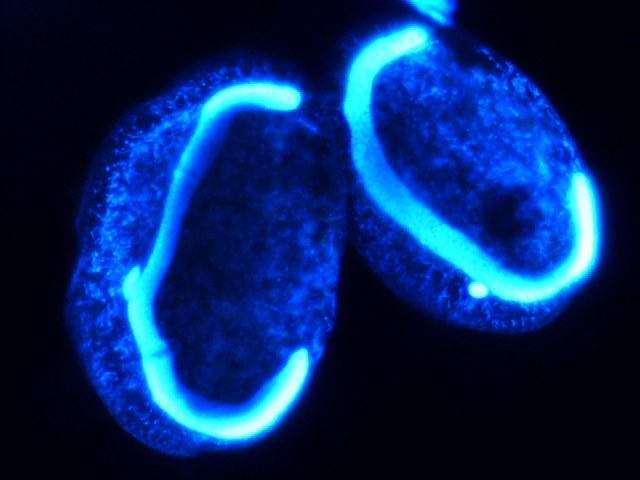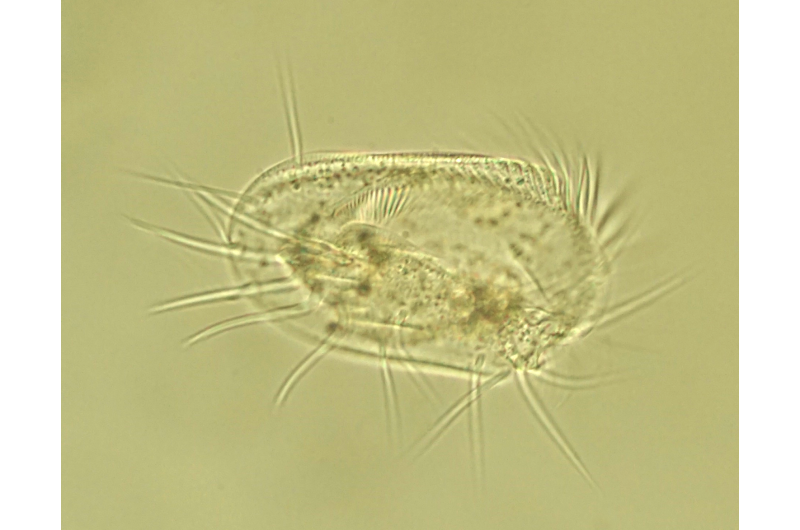Hostage situation or harmony? Researchers rethink symbiosis

Relationships where two organisms depend on each other, known as symbiosis, evoke images of partnership and cooperation. But a new study in Nature Ecology and Evolution shows that, when it comes to certain microorganisms, symbiotic partners are actually being held "hostage".
The international research team, led by biologists from the University of British Columbia, studied a freshwater bacterium called Polynucleobacter that often lives inside the single-celled protozoan, Euplotes, to better understand the relationship between symbionts, or organisms in symbiotic relationships.
"Most people think symbiosis means there is an evolution toward harmony, a perfect balance of the two partners," says Vittorio Boscaro, a biologist at UBC and lead author of the study. "But although the host needs the bacterium to survive, the bacterium doesn't gain any advantage in this relationship."
In fact, the researchers were able to determine that Euplotes hosts constantly "snatch up" useful bacteria like Polynucleobacter from the environment, and then later discard and replace them with "fresh" symbionts.
"They're being replaced, just like you change your clothes," said Patrick Keeling, a UBC microbiologist and senior author of the study. "You take advantage of your symbiont until it's no longer useful, and then you get a new one."

The team examined what was happening between the microbes by analyzing the genome of Polynucleobacter. Once it is snatched up by Euplotes, it leads to major changes to the Polynucleobacter genome.
While these changes are not unexpected, the researchers were surprised to learn how the genome changes over time. Typically, we think of evolution in terms of adaptation to survive. In the case of symbiotic Polynucleobacter, they found that the genome was changing and losing genes at random and ultimately ceasing to be useful to their host.
"I like to think of the relationship being more like death row than cooperation—sure the symbiont is kept safe and well-fed in the short term, but ultimately it's not a good place to be," said Keeling.

The researchers believe such insight may lead to a conceptual change of evolutionary processes and their complexity.
The paper was published in Nature Ecology & Evolution.
More information: Vittorio Boscaro et al, Parallel genome reduction in symbionts descended from closely related free-living bacteria, Nature Ecology & Evolution (2017). DOI: 10.1038/s41559-017-0237-0
Journal information: Nature Ecology & Evolution
Provided by University of British Columbia





















